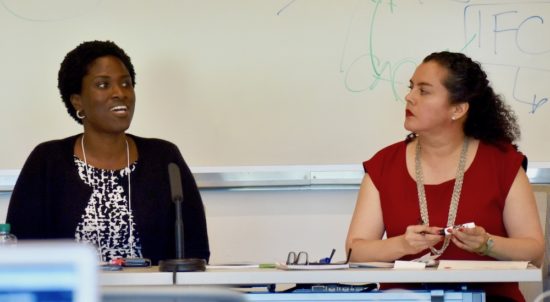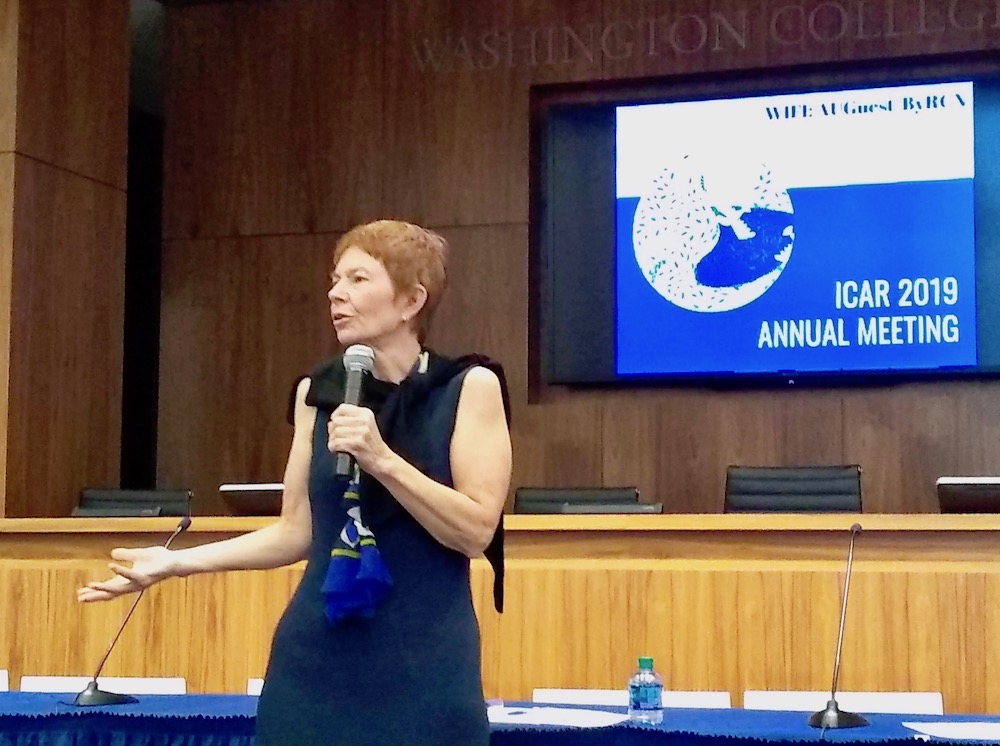Working Together for Corporate Accountability: 2019 ICAR Annual Meeting Recap

Accountability Counsel’s Policy team joined a diverse group of organizations working to ensure that corporations act responsibly and transparently, and provide remedy for harm tied to their activities, for the International Corporate Accountability Roundtable (ICAR) annual meeting last week.
The gathering had three main themes for the plenary discussions and interactive workshops: combating inequality and the oversized influence of corporations on policy making; advancing effective human rights due diligence; and discussing strategies to address the closing civic space around the world. Accountability Counsel’s Stephanie Amoako joined Carla García Zendejas from the Center for International Environmental Law (pictured) and Katherine Valencia from the Due Process of Law Foundation to explore tactics to address closing civic space in the “Defenders-at-Risk in Development: Emerging Strategies” interactive workshop. Development finance institutions (DFIs) often work closely with the private sector, including through financing private sector projects in countries where it can be difficult for affected people to challenge these projects. As a result, DFIs must ensure that they are acting responsibly, and the workshop focused on recent efforts of DFIs and their independent accountability mechanisms (IAMs) to prevent and address reprisals against individuals and communities raising their voices about projects affecting their livelihoods and environment.

ICAR Interim Executive Director Meg Roggensack
Communities that Accountability Counsel supports are unfortunately well-versed with the opposition and retaliation that can occur when one challenges aspects of DFI projects or files complaints with IAMs. Accountability Counsel is a member of the Defenders in Development campaign that is pushing DFIs to ensure that their financing avoids causing or contributing to human rights abuses and have policies and protocols in place to address risks and actual threats or instances of reprisals. The campaign, which is hosted by the Coalition for Human Rights in Development, has also directed advocacy toward IAMs to ensure that complainants, and those associated with them, are protected throughout the complaint process. During the workshop, Amoako discussed the recent International Finance Corporation Position Statement on Retaliation Against Civil Society and Project Stakeholders and the development of a toolkit to help IAMs navigate the risk of reprisals in their handling of complaints. These are important developments to ensure that communities are able to engage in advocacy around projects safely. Going forward, all DFIs and IAMs must take the challenges of closing civic space and the risk of retaliation seriously, and engage in efforts to create an enabling environment for community engagement in development.
In addition to speaking on this panel, Accountability Counsel was able to learn from the wealth of expertise convened at the meeting by participating in numerous workshops and discussions, including on strategic litigation, investor influence and responsibility, and using transparency to enhance accountability. We look forward to continuing our work with ICAR members to improve the landscape for corporate accountability around the world.

